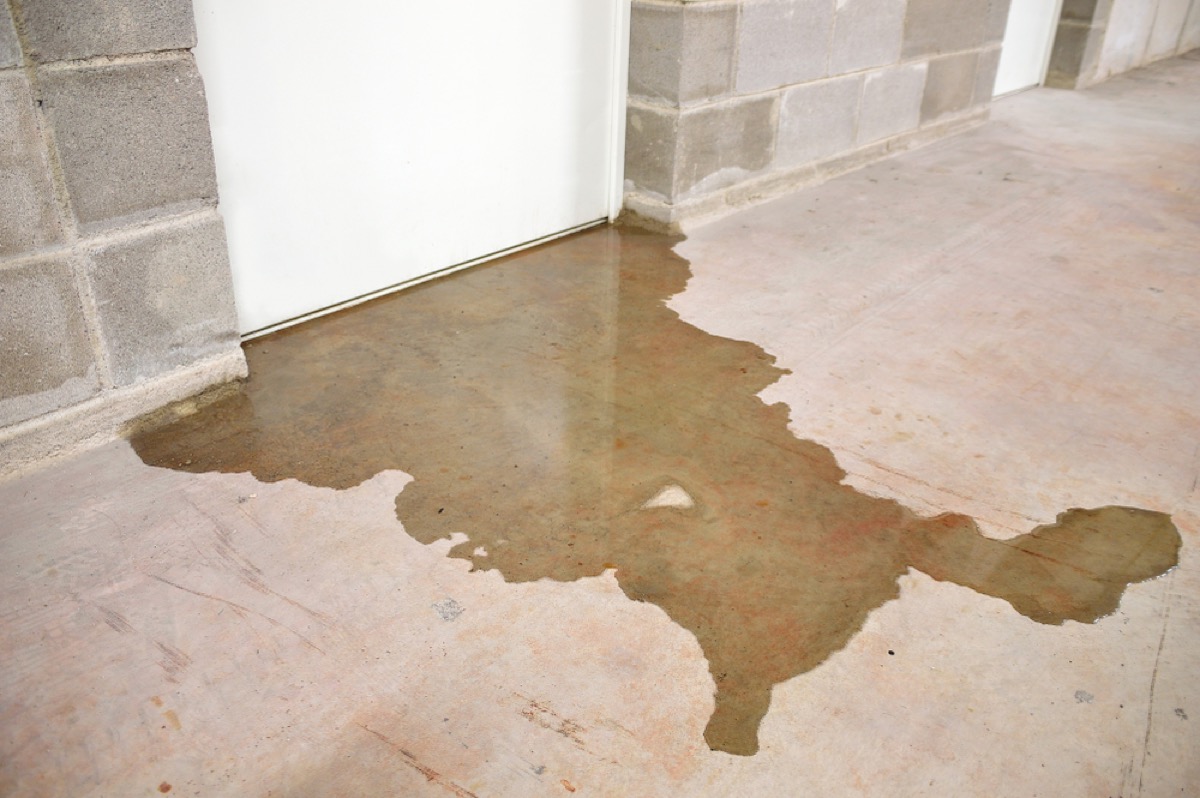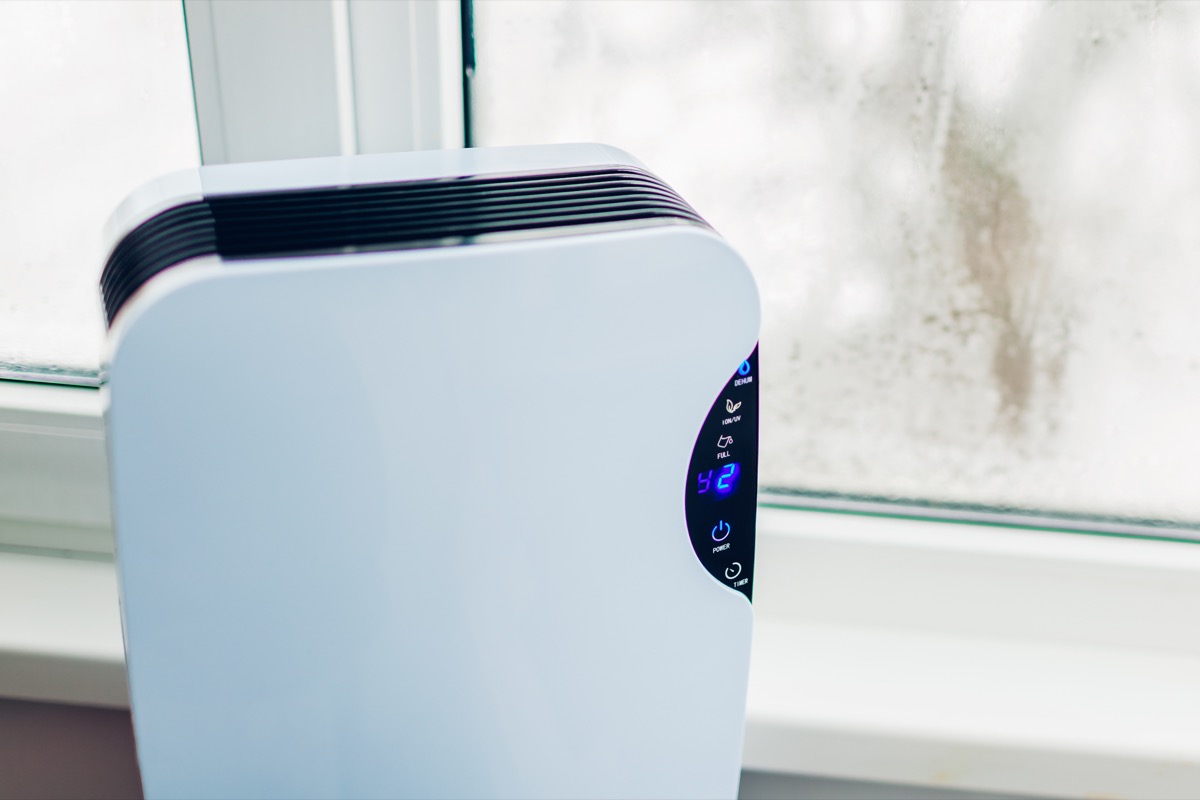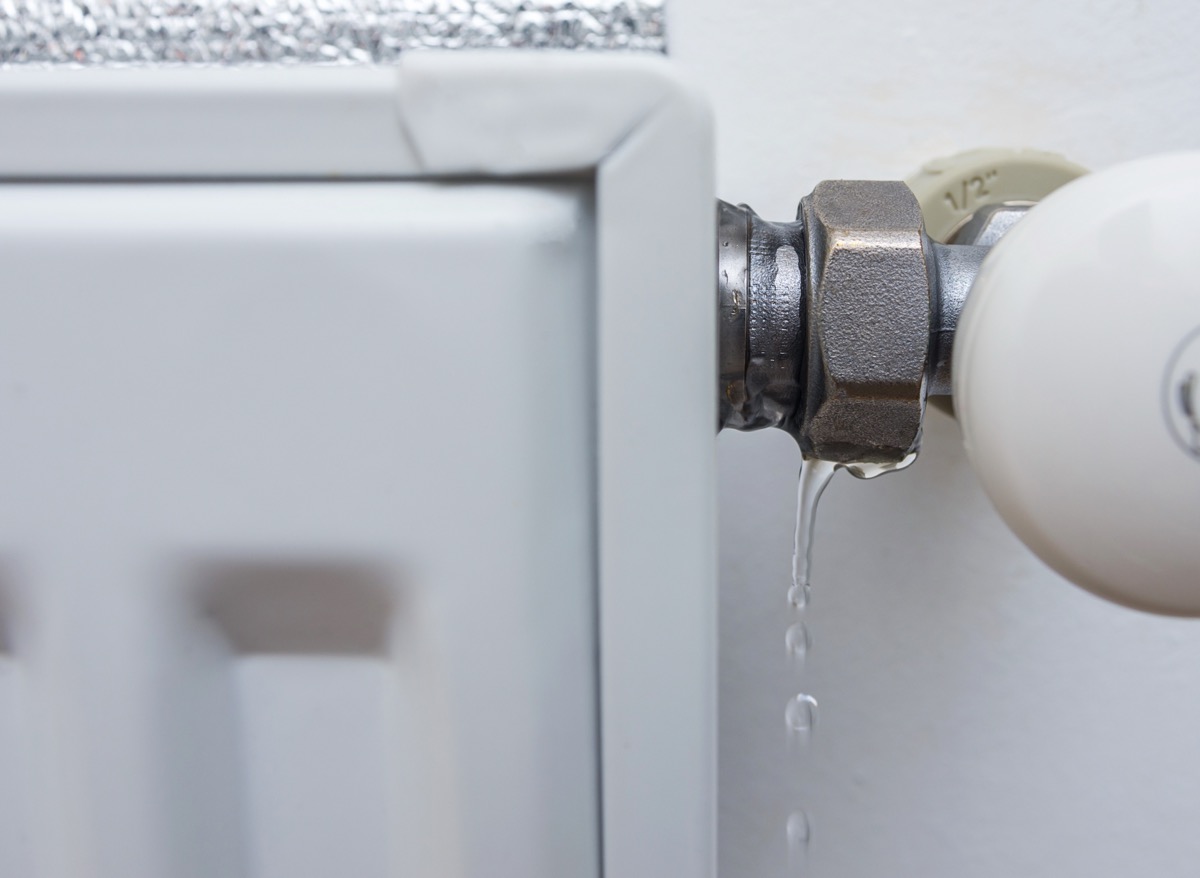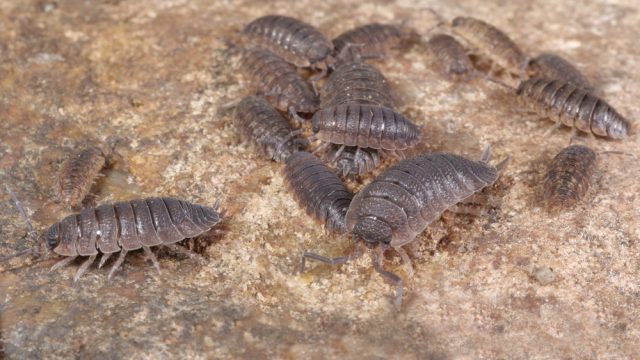You're Inviting Bugs Into Your Home If You Don't Have This
Making sure to have one can save you the grief of a major pest infestation.
You sweep. You organize. You take out your garbage. You manage your pantry. While many everyday chores help keep your home looking tidy and presentable, they're also essential in keeping pest problems at bay. But even if you've got your cleaning list covered top to bottom, you could still be asking for an infestation of bugs if your home is missing this one essential item. Read on to see what you should always have on hand to keep pests away.
RELATED: If You See This Bug in Your Home, Don't Step on It, Experts Warn.
You should run a dehumidifier to keep centipedes and other bugs out of your home.

When it comes to avoiding pest problems, most people assume ridding their house of food waste and general messiness will be enough to keep most unwanted insects and rodents away. But besides eliminating pest food sources, one of the best tactics to keep your home bug-free is to run a dehumidifier. This deprives bugs of the moisture they need to survive, including centipedes, millipedes, silverfish, mosquitoes, and cockroaches.
"Moisture, in general, can be a very conducive environment for bugs. Running a dehumidifier reduces the favorable conditions in your home," Karl Rowell, Quality Assurance and Safety Manager for Batzner Pest Control, explains.
Standing puddles and moisture can be a seasonal or year-round problem for some homes.

Like all living organisms, pests need moisture to stay alive and reproduce. And similar to ridding your house of garbage, controlling humidity issues involves being aware of problem areas in basements, crawl spaces, attics, and garages that may go unnoticed. Even if it's not a persistent problem, some homes are particularly susceptible to becoming too damp when seasonal weather patterns like heavy rains or high humidity create the conditions bugs and pests need to thrive.
Besides standing water, windows that are regularly covered in condensation, mold, mildew, warped wood, or soggy insulation can indicate that humidity in your home is too high. If a certain space smells musty, you can also use a moisture meter to scan for problems.
RELATED: For more up-to-date information, sign up for our daily newsletter.
Aim to keep problem areas, such as basements or crawl spaces, below 50 percent humidity.

Even if you don't see any major warning signs like standing water, damp air can still provide the kind of conditions pests need to thrive in your home. Monitoring moisture levels in the air can help you stay ahead of the problem. The optimal range is between 30 and 50 percent humidity at all times, according to appliance rating agency Energy Star.
When purchasing a humidifier, ensure that it includes a humidistat that allows you to set your desired humidity level and monitor conditions easily. You should also make sure you're checking each appliance's capabilities, so that whichever device you use is powerful enough to cover the square footage of the space. In most cases, separate rooms will require their own units to properly control humidity, according to Energy Star.
Taking care of leaks and other home repairs can also help control humidity around the house.

Running a humidifier can only get you so far in controlling pest and bug problems in some extreme situations. Make sure moisture problems in your home aren't caused by cracks in your foundation, leaky pipes, or an appliance such as a water heater or air conditioning unit that may need repair. You can help keep things dry by running fans or installing exhaust units in trouble spots like basements, attics, and crawl spaces—and simply taking cooler showers can help cut down on steam as well.
RELATED: If You're Not Cleaning This, You're Inviting Spiders to Your Home.






















